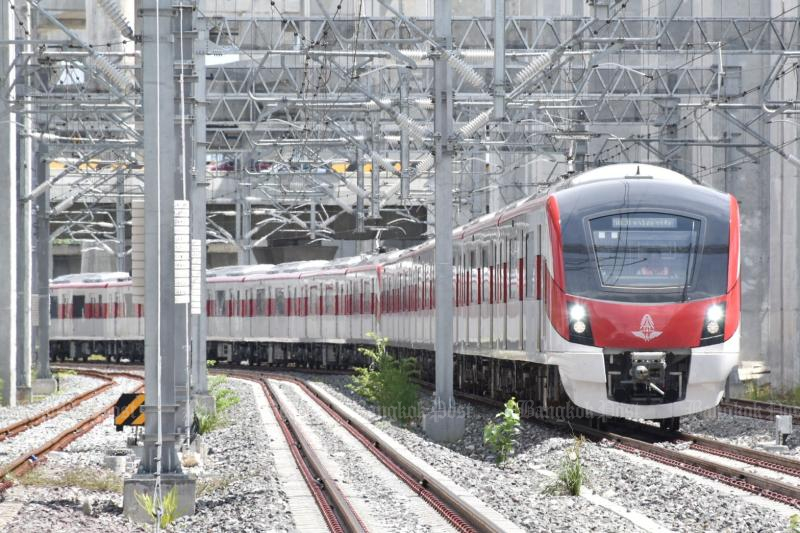
A three-month trial run of the Red Line electric train service begins on Monday, with carriages limited to half-capacity to allow passengers to maintain social distancing during their ride.
Prime Minister Prayut Chan-o-cha will preside over the ceremony to launch the much-anticipated urban commuter line via video conference.
However, Transport Minister Saksayam Chidchob, along with State Railway of Thailand governor Nirut Maneephan are both expected to welcome passengers at Bang Sue Grand Station for the opening of the trial.
Deputy government spokeswoman, Traisuree Taisaranakul, said commercial services are expected to begin in November.
Gen Prayut is encouraging investments in the development of the rail system, which will reduce logistics costs and help distribute wealth to the country's outlying areas, she said.
As the launch is happening during a pandemic, public health will be a priority. Carriages, the SRT said, will be limited to half-capacity to allow ample room within for social distancing.
A four-carriage train set can carry up to 550 people, the company said.
During the trial period, passengers will be able to ride along the Red Line's two sections -- the 26-kilometre route between Bang Sue and Rangsit, and the 15-km stretch between Bang Sue and Taling Chan -- for free.
The launch was initially scheduled to take place in March.
The SRT also said its board has decided to postpone making any decision on fares along the Red Line, as it considers other data and discusses the matter with the Department of Rail Transport.
Fares were expected to range between 12-42 baht.
The fare structure needs adjusting, Mr Ninut conceded, although he said the SRT still has time before the launch of commercial services to make the necessary changes.